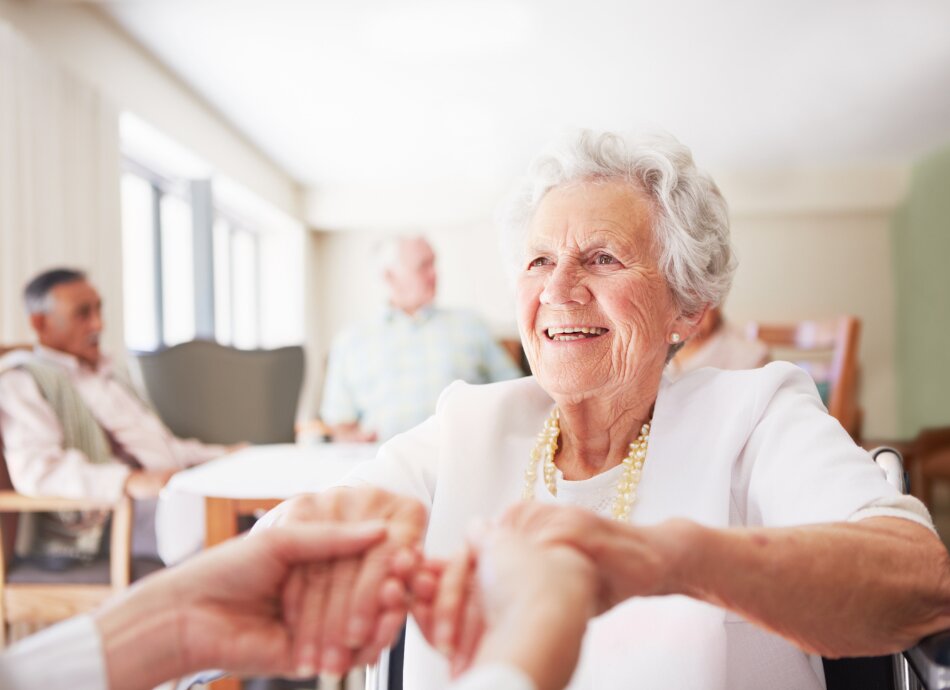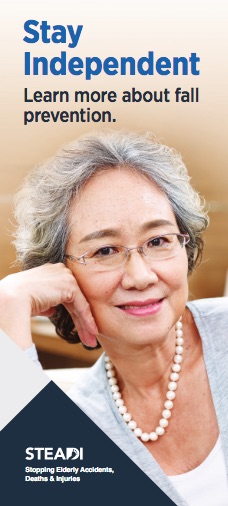You can now add Healthify as a preferred source on Google. Click here to see us when you search Google.
Medicines and falls risk
Key points about medicines and falls risk
- Some medicines, or combinations of medicines, may have side effects that can increase your risk of falling.
- They may affect your balance, concentration or slow your reaction times.
- There are a few things you can do to reduce your risk of falls, including having your medicines reviewed regularly by your pharmacist.
- If you're worried about falls, ask your doctor or pharmacist to review your medicines.

Some medicines have side effects that can increase your risk of falls.
They can:
- affect your balance
- affect your concentration
- slow your reaction times.
Examples of side effects that increase your risk of falls are drowsiness, dizzy spells, confusion, dehydration and visual disturbances. Some medicines can also affect your movement – this may involve excessive or involuntary or slowed movement.
Things that increase your falls risk
- The risk of having a fall is greater if you're taking a combination of medicines. Studies have shown that taking 4 or more medicines per day greatly increases falls risk.
- Drinking alcohol when you're taking some medicines can increase your risk of falling and confusion.
- Older adults also respond to medicines differently. As you get older, your metabolism slows down, medicines stay in your body longer and your body becomes more sensitive to the effects of some medicines.
- Over the counter or herbal medicines can also have side effects that may worsen falls.
Remember, if you have a fall, don't ignore it. Always let your healthcare provider know so they can see how you are, and give you advice on how to reduce the risk of having another fall. Read more about what to do if you have a fall.
Some medicines can increase your risk of falling, especially as you get older. Below are some tips on how you can prevent falls when taking medicines.
Talk to your healthcare provider about your fall risk
Ask your healthcare provider if any of the medicines you take can increase your risk of falling.
- Some medicines may make you feel faint or dizzy or have blurry vision or impaired judgment. Also some medicines can increase your risk of severe injury, such as facture or bleeding, after a fall.
- These are all important side effects to note and discuss with your healthcare provider.
Get your medicines reviewed regularly
If you're taking many medicines and are worried about the side effects of those medicines causing you to fall, get your medicines reviewed by your healthcare provider.
- This includes prescriptions, over-the-counter (OTC) and herbal medicines.
- Do this at least once a year.
- Sometimes, under the guidance of your healthcare provider, some medicines can be stopped, or the dose lowered or you can be switched to a safer type of medicine.
If you do have a fall, it's always useful to have your medicines reviewed to help prevent further falls.
Be careful when starting a new medicine
When starting a new medicine ask your pharmacist if there any side effects that could put you at a risk of falling.
- Be careful when you first start a medicine until you know how the medicine affects you.
- Some side effects, such as dizziness or drowsiness, may be worse when starting a new medicine and may improve as your body gets used to the new medicine.
- Ask your pharmacist about the best time of day for you to take new medicines.
Get up or stand up slowly
If you notice that your medicine causes dizziness or affects your balance, get out of bed or stand up slowly. Take a few minutes to sit on your bed or on a chair first. The dizziness should go away after a while. Use extra care if you use a cane, a walker, or crutches.
Check if your medicine interacts with alcohol
It can be dangerous to mix alcohol with some prescriptions, over-the-counter (OTC) or herbal medicines.
- Drinking alcohol can affect your balance, make you feel sleepy, drowsy or dizzy and it can worsen the side effects of some medicines.
- Always read the label of your medicine, including OTC and herbal medicines.
- If your medicine has a warning label to avoid alcohol, then it's best to avoid drinking alcohol while you're taking the medicine.
- If you're not sure, check with your pharmacist about the effects of alcohol with your medicines.
- Read more about alcohol and medicines.
Learn more about falls and other things can you do to lower your risk of falls.
Brochures
Stay independent – learn more about fall prevention(external link) CDC, US
5 questions to ask about your medications(external link) Health Quality and Safety Commission, NZ, 2019 English,(external link) te reo Māori(external link)
References
- Reducing harms from falls(external link) Health Quality and Safety Commission New Zealand
- Stay independent(external link) Falls Prevention Toolkit, BPAC, NZ
Brochures

Medicines and side effects
Healthify He Puna Waiora, NZ, 2024

Health Quality and Safety Commission, NZ, 2019
English(external link)Te reo Māori(external link)
Credits: Sandra Ponen, Pharmacist, Healthify He Puna Waiora. Healthify is brought to you by Health Navigator Charitable Trust.
Reviewed by: Angela Lambie, Pharmacist, Auckland
Last reviewed:






